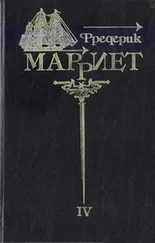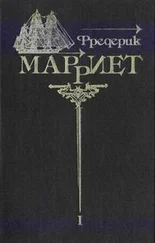Фредерик Марриет - Jacob Faithful
Здесь есть возможность читать онлайн «Фредерик Марриет - Jacob Faithful» — ознакомительный отрывок электронной книги совершенно бесплатно, а после прочтения отрывка купить полную версию. В некоторых случаях можно слушать аудио, скачать через торрент в формате fb2 и присутствует краткое содержание. Жанр: prose_military, literature_19, foreign_antique, foreign_prose, на английском языке. Описание произведения, (предисловие) а так же отзывы посетителей доступны на портале библиотеки ЛибКат.
- Название:Jacob Faithful
- Автор:
- Жанр:
- Год:неизвестен
- ISBN:нет данных
- Рейтинг книги:4 / 5. Голосов: 1
-
Избранное:Добавить в избранное
- Отзывы:
-
Ваша оценка:
- 80
- 1
- 2
- 3
- 4
- 5
Jacob Faithful: краткое содержание, описание и аннотация
Предлагаем к чтению аннотацию, описание, краткое содержание или предисловие (зависит от того, что написал сам автор книги «Jacob Faithful»). Если вы не нашли необходимую информацию о книге — напишите в комментариях, мы постараемся отыскать её.
Jacob Faithful — читать онлайн ознакомительный отрывок
Ниже представлен текст книги, разбитый по страницам. Система сохранения места последней прочитанной страницы, позволяет с удобством читать онлайн бесплатно книгу «Jacob Faithful», без необходимости каждый раз заново искать на чём Вы остановились. Поставьте закладку, и сможете в любой момент перейти на страницу, на которой закончили чтение.
Интервал:
Закладка:
“I like it very much,” replied I.
“And now, father, give us a whole song, and none of your little bits.” Old Tom broke out with the “Death of Nelson,” in a style that made the tune and words ring in my ears for the whole evening.
The moon was up before the tide served, and we weighed our anchor; old Tom steering, while his son was preparing supper, and I remaining forward, keeping a sharp look-out that we did not run foul of anything. It was a beautiful night; and as we passed through the several bridges, the city appeared as if it were illuminated, from the quantity of gas throwing a sort of halo of light over the tops of the buildings which occasionally marked out the main streets from the general dark mass—old Tom’s voice was still occasionally heard, as the scene brought to his remembrance his variety of song.
“For the murmur of thy lip, love,
Comes sweetly unto me,
As the sound of oars that dip, love,
At moonlight on the sea.”
I never was more delighted than when I heard these snatches of different songs poured forth in such melody from old Tom’s lips, the notes floating along the water during the silence of the night. I turned aft to look at him; his face was directed upwards, looking on the moon, which glided majestically through the heavens, silvering the whole of the landscape. The water was smooth as glass, and the rapid tide had swept us clear of the ranges of ships in the pool; both banks of the river were clear, when old Tom again commenced:—
“The moon is up, her silver beam
Shines bower, and grove, and mountain over;
A flood of radiance heaven doth seem
To light thee, maiden, to thy lover.”
“Jacob, how does the bluff-nob bear? on the starboard bow?”
“Yes—broad on the bow; you’d better keep up half a point, the tide sweeps us fast.”
“Very true, Jacob; look out, and say when steady it is, boy.
“If o’er her orb a cloud should rest,
’Tis but thy cheek’s soft blush to cover.
He waits to clasp thee to his breast;
The moon is up—go, meet thy lover.
“Tom, what have you got for supper, boy? What is that frizzing in your frying-pan? Smells good, anyhow.”
“Yes, and I expect will taste good too. However, you look after the moon, father, and leave me and the frying-pan to play our parts.”
“While I sing mine, I suppose, boy.
“The moon is up, round beauty’s shine,
Love’s pilgrims bend at vesper hour,
Earth breathes to heaven, and looks divine,
And lovers’ hearts confess her power.”
Old Tom stopped and the frying-pan frizzled on, sending forth an odour which, if not grateful to Heaven, was peculiarly so to us mortals, hungry with the fresh air.
“How do we go now, Jacob?”
“Steady, and all’s right; but we shall be met with the wind next reach, and had better brail up the mainsail.”
“Go, then, Tom, and help Jacob.”
“I can’t leave the ingons , (onions) father, not if the lighter tumbled overboard; it would bring more tears in my eyes to spoil them, now that they are frying so merrily, than they did when I was cutting them up. Besides, the liver would be as black as the bends.”
“Clap the frying-pan down on deck, Tom, and brail the sail up with Jacob, there’s a good boy. You can give it another shake or two afterwards.
“Guide on, my bark, how sweet to rove,
With such a beaming eye above!
“That’s right, my boys, belay all that; now to our stations; Jacob on the look-out, Tom to his frying-pan, and I to the helm—
“No sound is heard to break the spell,
Except the water’s gentle swell;
While midnight, like a mimic day,
Shines on to guide our moonlight way.
“Well, the moon’s a beautiful creature—God bless her! How often have we longed for her in the dark winter, channel-cruising, when the waves were flying over the Eddystone, and trying in their malice to put out the light. I don’t wonder at people making songs to the moon, nor at my singing them. We’ll anchor when we get down the next reach.”
We swept the next reach with the tide which was now slacking fast. Our anchor was dropped and we all went to supper, and to bed. I have been particular in describing the first day of my being on board with my new shipmates, as it may be taken as a sample of our every day life; Tom and his father fighting and making friends, cooking, singing, and spinning yarns. Still, I shall have more scenes to describe. Our voyage was made, we took in a return cargo, and arrived at the proprietor’s wharf, when I found that I could not proceed with them the next voyage, as the trial of Fleming and Marables was expected to come on in a few days. The lighter, therefore, took in another cargo, and sailed without me; Mr Drummond, as usual, giving me the run of his house.
Chapter Ten
It was on the 7th of November, if I recollect rightly, that Fleming and Marables were called up to trial at the Old Bailey, and I was in the court, with Mr Drummond and the Dominie, soon after ten o’clock. After the judge had taken his seat, as their trial was first on the list, they were ushered in. They were both clean and well dressed. In Fleming I could perceive little difference; he was pale, but resolute; but when I looked at Marables I was astonished. Mr Drummond did not at first recognise him—he had fallen away from seventeen stone to, at the most, thirteen—his clothes hung loosely about him—his ruddy cheeks had vanished—his nose was becoming sharp, and his full round face had been changed to an oblong. Still there remained that natural good-humoured expression in his countenance, and the sweet smile played upon his lips. His eyes glanced fearfully round the court—he felt his disgraceful situation—the colour mounted to his temples and forehead, and he then became again pale as a sheet, casting down his eyes as if desirous to see no more.
After the indictment had been read over, the prisoners were asked by the clerk whether they pleaded guilty or not guilty.
“Not guilty,” replied Fleming, in a bold voice.
“John Marables—guilty or not guilty?”
“Guilty,” replied Marables—“guilty, my lord;” and he covered his face with his hands.
Fleming was indicted on three counts;—an assault, with intent to murder; having stolen goods in his possession; and for a burglary in a dwelling-house, on such a date; but I understand that they had nearly twenty more charges against him, had these failed. Marables was indicted for having been an accessary to the last charge, as receiver of stolen goods. The counsel for the crown, who opened the trial, stated that Fleming, alias Barkett, alias Wenn, with many more aliases , had for a long while been at the head of the most notorious gang of thieves which had infested the metropolis for many years; that justice had long been in search of him, but that he had disappeared, and it had been supposed that he had quitted the kingdom to avoid the penalties of the law, to which he had subjected himself by his enormities. It appeared however, that he had taken a step which not only blinded the officers of the police, but at the same time had enabled the gang to carry on their depredations with more impunity than ever. He had concealed himself in a lighter on the river, and appearing in her as one diligently performing his duty, and earning his livelihood as an honest man had by such means been enabled to extend his influence, the number of his associates, and his audacious schemes. The principal means of detection in cases of burglary was by advertising the goods, and the great difficulty on the part of such miscreants was to obtain a ready sale for them—the receivers of stolen goods being aware that the thieves were at their mercy, and must accept what was offered. Now, to obviate these difficulties, Fleming had, as we before observed, concealed himself from justice on board of a river barge, which was made the receptacle for stolen goods: those which had been nefariously obtained at one place being by him and his associates carried up and down the river in the craft, and disposed of at a great distance, by which means the goods were never brought to light, so as to enable the police to recognise or trace them. This system had now been carried on with great success for upwards of twelve months, and would, in all probability, have not been discovered even now, had it not been that a quarrel as to profits had taken place, which had induced two of his associates to give information to the officers; and these two associates had also been permitted to turn king’s evidence, in a case of burglary, in which Fleming was a principal, provided that it was considered necessary. But there was a more serious charge against the prisoner,—that of having attempted the life of a boy, named Jacob Faithful, belonging to the lighter, and who, it appeared, had suspicions of what was going on, and, in duty to his master, had carefully watched the proceedings, and given notice to others of what he had discovered from time to time. The lad was the chief evidence against the prisoner Fleming, and also against Marables, the other prisoner, of whom he could only observe, that circumstances would transpire, during the trial, in his favour, which he had no doubt would be well considered by his lordship. He would not detain the gentlemen of the jury any longer, but at once call on his witnesses.
Читать дальшеИнтервал:
Закладка:
Похожие книги на «Jacob Faithful»
Представляем Вашему вниманию похожие книги на «Jacob Faithful» списком для выбора. Мы отобрали схожую по названию и смыслу литературу в надежде предоставить читателям больше вариантов отыскать новые, интересные, ещё непрочитанные произведения.
Обсуждение, отзывы о книге «Jacob Faithful» и просто собственные мнения читателей. Оставьте ваши комментарии, напишите, что Вы думаете о произведении, его смысле или главных героях. Укажите что конкретно понравилось, а что нет, и почему Вы так считаете.












